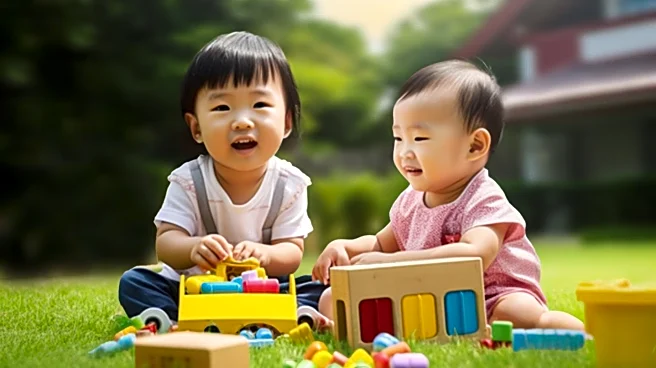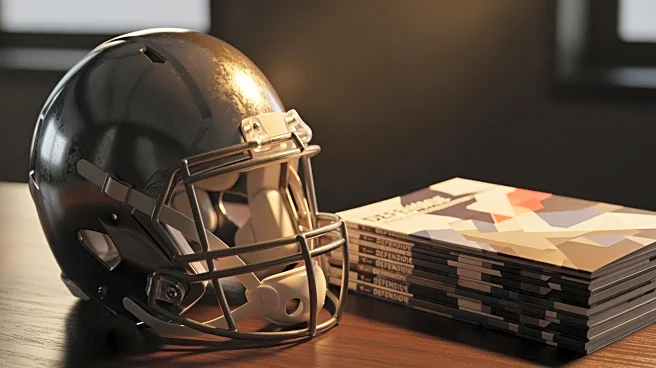What's Happening?
A 44-year-old American mother living in Berlin was surprised to discover that her 3-year-old son was learning to light matches at his German preschool. This practice is part of a broader educational philosophy
known as 'risky play,' which encourages children to engage in activities that test their limits under supervision. The mother observed that the preschool's curriculum included using real tools like saws and hammers, which starkly contrasts with typical American safety standards in early childhood education. The approach aims to teach children self-reliance and risk assessment by allowing them to experience and navigate potential dangers with guidance.
Why It's Important?
The concept of 'risky play' challenges conventional American parenting norms, which often prioritize safety and risk avoidance. This educational philosophy could influence discussions on child development and parenting styles in the U.S., potentially leading to a reevaluation of how children are taught to handle risks. Proponents argue that such experiences can foster independence and confidence in children, while critics may raise concerns about safety and the potential for accidents. The debate touches on broader cultural differences in parenting and education between the U.S. and other countries like Germany.
Beyond the Headlines
The adoption of 'risky play' in educational settings could have long-term implications for child development theories and practices. It raises ethical questions about the balance between safety and independence in childhood education. Additionally, it may influence future educational policies and parental expectations, potentially leading to a shift in how risk is perceived and managed in early childhood environments.









